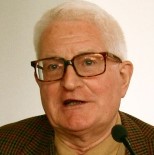Erich Weede
ERICH WEEDE (Hildesheim, 1942) was professor of sociology at the Universities of Cologne and Bonn until his retirement. He had acquired academic degrees in psychology and political science. In 1982–83 he was president of the Peace Science Society, and in 1985–86 vice-president of the International Studies Association. In 1986–87 he was visiting professor of International Relations at the Bologna Center of the Johns Hopkins University. For some time, he served on the editorial boards of the Electronic Journal of Sustainable Development, International Interactions, Journal of Conflict Resolution, Korea and World Affairs and New Asia. He has produced 11 books and about 250 other publications in German or English. He has studied the causes and prevention of wars, the rise and decline of nations, Asian civilisations, the invention of capitalism, the spread of economic freedom, economic growth and income inequality. His books include Economic Development, Social Order and World Politics (1996), Asien und der Westen (2000), The Balance of Power, Globalization, and the Capitalist Peace (2005), and Freiheit und Verantwortung, Aufstieg und Niedergang (2012). He is a member of the Mont Pelerin Society and a founding member of the Hayek Gesellschaft.

